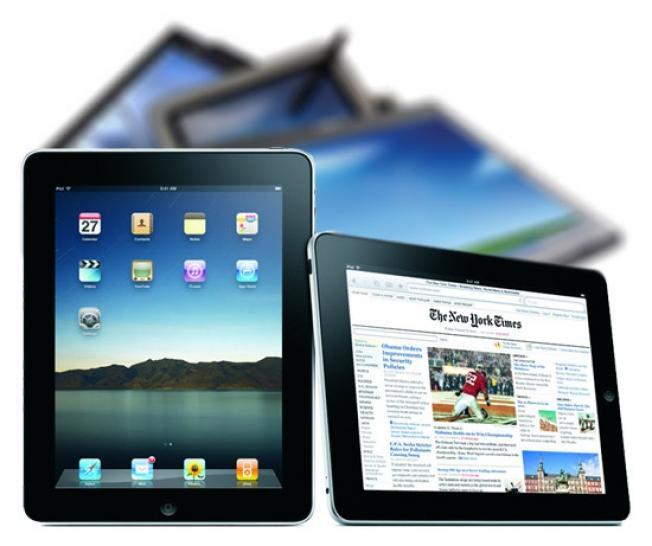
If you take the "phone" aspect out of "smartphone" and increase the size by an inch or three, what do you get? Essentially, at that point you have a tablet. Although smartphones can generally do just as much, if not more, than tablets can do, their larger size can often make the job easier to finish in the end simply because you have more room to work with. The tablet first became popular back in 2010 with the release of the Apple iPad, which has since created a booming market of tablets of several sizes. Tablets are even influencing the size of our smartphones, as manufacturers try to combine the convenience of a larger screen with the portability of a cell phone.
When the iPad first came out, it was priced similarly to a low-end laptop. Starting at $499 base price for the model with the lowest amount of memory, the price for the iPad was actually lower than initially expected. Just as the iPhone had started the smartphone revolution, it seemed that Apple would be doing the same with the iPad for the tablet market. With the iPad being the first tablet that people really seemed interested in, $499 didn't seem like a terrible starting price. In fact, that same base price model still applies to new iPads released in present day; like their phone lineup, when a new iPad is released the base model starts at $499 and the generation before it is knocked down in price. With the iPad line being the best-selling tablet on the market (although Android is the most dominant OS for tablets), it would seem like the pricing model still works rather well for the Cupertino company.
But what about other tablets that have come out since then to compete with it? How have they affected the way we see tablets?
Android tablets in particular were the first in line to try and compete with iPads. It's hard to pick out exactly which Android tablet came out first after successful sales of the iPad; it seemed that manufacturers were just trying to push products out there just to have them out there. At the time of their tablet boom, iOS was more mature in its app market selection, and therefore made it seem like any tablet running on Android that was priced similarly would be a waste of money. Some tablets did just that, such as the Samsung Galaxy Tab 10.1 and the Motorola Xoom. Some Android tablets were even priced higher than the iPad, but when it came down to ecosystem and development, at the time it seemed like there was only one clear winner when it came to tablet efficiency.
But time passed, and as it passed Android began improving marginally when it came to how smooth and functional their software was. Not only did the software improve, but so did the pricing. Tablets like the Kindle Fire, the Nexus 7, and the Nook, which were all priced at or around $200, made viable options for cheaper Android alternatives to the expensive iPads that were being released each year. Specifically in regards to the Nexus 7, I feel like this has spoiled us into thinking that tablets should be cheaper.
Take for example the release of the new LG G Pad 8.3. The appropriately named 8.3-inch tablet was released for the U.S. today, and upon seeing the $349 price tag, my first thought was "That's too expensive for a tablet," but upon further consideration, it's really not that bad of a price considering what tablets can do these days. But would I ever buy one? No, I probably wouldn't. I would rather purchase a new Nexus 7, which is almost as good of a device spec-wise, for $229 rather than $349. I already purchased my "expensive tablet", which was the Galaxy Note 8.0 for $399. Although the S Pen is great for when I want to sketch, looking back it really wasn't worth that much money in comparison to the Nexus 7, which was released around the same time.
Maybe it's because I personally see tablets as a passive gadget. I only use mine every once in a great while for drawing, but otherwise it's a dust gatherer in a desk drawer. I already don't like spending $200 or so every time I upgrade phones, a device that I use frequently each day, so it's hard to justify spending that much (or more) on a tablet that gets picked up once every two weeks - if that. Even though I think some of the higher priced tablets that are coming out are nice, and essentially I would like to have them, I just can't see myself ever buying an expensive tablet again.
What about you, readers? Do you prefer to go for the more expensive tablets, or have cheaper tablets changed your mind about how much a tablet is worth? Let us know your thoughts in the comments below!